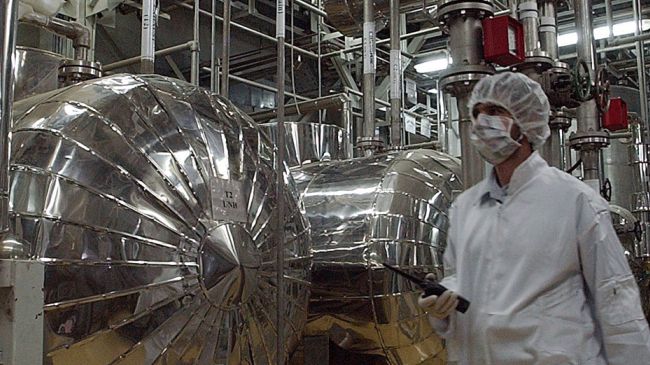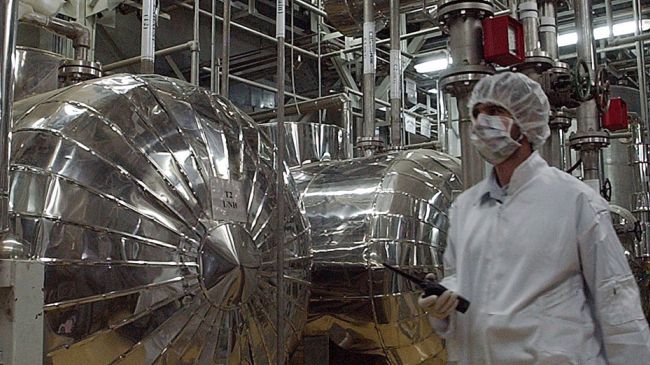 An Iranian technician at Natanz enrichment facility. (file photo)[/caption]
An Iranian technician at Natanz enrichment facility. (file photo)[/caption]A senior Iranian nuclear official says Majlis is the ultimate decision-maker body on the country's joining the Additional Protocol as part of the nation�s comprehensive nuclear energy program.
�If the sanctions are removed, animosities will end and all issues regarding [Iran�s] nuclear dossier are resolved�.we are ready to sign the Additional Protocol; however, Majlis will be the final decision-maker,� Behrouz Kamalvandi spokesman for the Atomic Energy Organization of Iran (AEOI) said on Monday.
��The government can accept the Additional Protocol based on its reviews and expediency and progress in the [nuclear] talks but it is the Majlis which should take the final decision,� he said.
Kamalvandi said that under the Geneva interim deal, the signing of the Additional Protocol is �part of and one of the key elements of a comprehensive nuclear energy program� of Iran.
Iran and the five permanent members of the UN Security Council -- the United States, France, Britain, Russia, China � plus Germany � sealed an interim deal in the Swiss city of Geneva on November 24, 2013 to pave the way for the full resolution of the decade-old dispute with Iran over the country�s nuclear energy program. The deal came into force on January 20.
Under the Geneva deal, dubbed the Joint Plan of Action, the six countries undertook to provide Iran with some sanctions relief in exchange for the Islamic Republic agreeing to limit certain aspects of its nuclear activities during a six-month period.
Iran and the six countries have been discussing ways to iron out differences and start drafting a final deal that would end the decade-old dispute over Tehran�s nuclear energy program.
Kamalvandi said that if Iran and the P5+ 1 group reach a final deal, the only thing left would be more transparency on Tehran�s nuclear energy program.
The Iranian official said, however, that Tehran would take those transparency measures as requested by the International Atomic Energy Agency (IAEA).
The Additional Protocol requires member states to provide an expanded declaration of their nuclear activities and grants the agency broader rights of access to their nuclear sites.
Tehran voluntarily signed the Additional Protocol in December 2003 and remained committed to it for over two years, but suspended its implementation after the UN Security Council �interfered� in the country�s nuclear energy program and imposed sanctions on the Islamic Republic.
By Press TV
The Iran Project is not responsible for the content of quoted articles.











